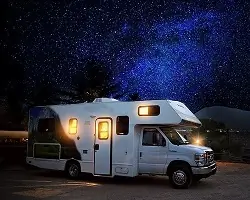Home » Insurance » Motor Vehicle » Business Vehicle » Compare Campervan and Motorhome Self Drive Hire Insurance Policies

Firstly let us explain the different types of policies in the market for those looking to hire out Campervans or Motorhomes - and the reasons you might want to use each solution.
For established motorhome hire companies with at least 3 years trading history and at least 5 vehicles.
Your premiums can be based on your rental revenue, a day rate, or a rate per vehicle basis – whatever is best for you.
Rental desk training can be offered for your hire team – this cuts the risk of vehicle loss & keeping premiums low.
Some insurers offer a smartphone app is offered to help your motorhome hire customers immediately report a claim.
Pro's - Flexible insurance solution designed around your business by a team of self-drive motorhome hire insurance specialists who look after several hundred self-drive hire businesses.
Con's - You need to be an established business with a track record before you can be considered.
For more information we suggest discussing your options with motorhome fleet insurers listed on the BVLRA website. This is the site managed by the British Vehicle Leasing and Rental Association - the leading trade body for rental firms.
Suits firms that are either new or less than three years old, or those with less than 5 vehicles.
Also ideal for those who want the flexibility of only paying for insurance when vans are out on hire.
Needs to be combined with a Motor Traders or Standard Vehicle Policy (to cover your Campervan or Motorhome when they are not being hired out).
The hirer puts the insurance in place so can be certain your motorhome is fully insured whilst on the road.
Pro's - Very flexible Pay As you Go approach and ideal for those wanting to avoid significant upfront costs whilst growing their business.
Con's - Insurance costs will be calculated individually based on the track record of the hirer, so quoting a standard inclusive rate for hiring out is more difficult. Slightly more admin as insurance needs to be put in place for each rental.
Licences must be checked and verified by you, through relevant services, as well as checks on the hirer, confirming addresses and identity. This is important to meet UK Anti Money Laundering legislation.
To arrange a quote visit the InsureCarHire website who offer this type of cover.
An annual self drive policy that allows personal use by a small number of drivers when the vans are not 'on-hire'.
Other optional extras, such as European Cover can be arranged to tailor the cover to your personal situation as needed too.
Similar cover is also available for shorter periods, from 3 days upwards.
Pros - The annual policy is a very easy way to cover your personal use whilst allowing you to make money from hiring your van out when not using it.
Cons - Again you are responsible for checking the hirer's details, and it's quite tricky in the early days of hiring out your van to know whether the cost of such a policy will be covered by your rental income.
Get a quote quickly with Adrian Flux by calling free on 0800 181 4542 (Monday to Friday 9am - 7pm and Saturdays from 9am to 4pm). They find that in over 70% of occasions the best rates are achieved over the phone.
Ideal for those predominantly hiring or lending to friends and family.
Hirer must put the policy in place and pays the insurer directly.
Claims are instigated by the policyholder - i.e. the person who has hired the van rather than the owner.
Claims do not affect you, as it's the hirer's insurance record or no claims bonus.
For the van owner it's essential to spot any damage when the van is returned in order that a claim can be made before you lose touch with the hirer.
Pro's - The Insurer deals with the legal requirements regarding identifying the policyholder to meet Anti Money Laundering legislation. Vehicles can be hired on an 'excluding insurance rate' basis with claims not affecting your policy record.
Con's - As a hirer you are not in as much control as you are not the policyholder.
More details of companies offering these policies can be found on our Temporary Motorhome Insurance page.
We use cookies and other tracking technologies to improve your browsing experience on our website, to show you personalized content and targeted ads, to analyze our website traffic, and to understand where our visitors are coming from. By browsing our website, you consent to our use of cookies and other tracking technologies.